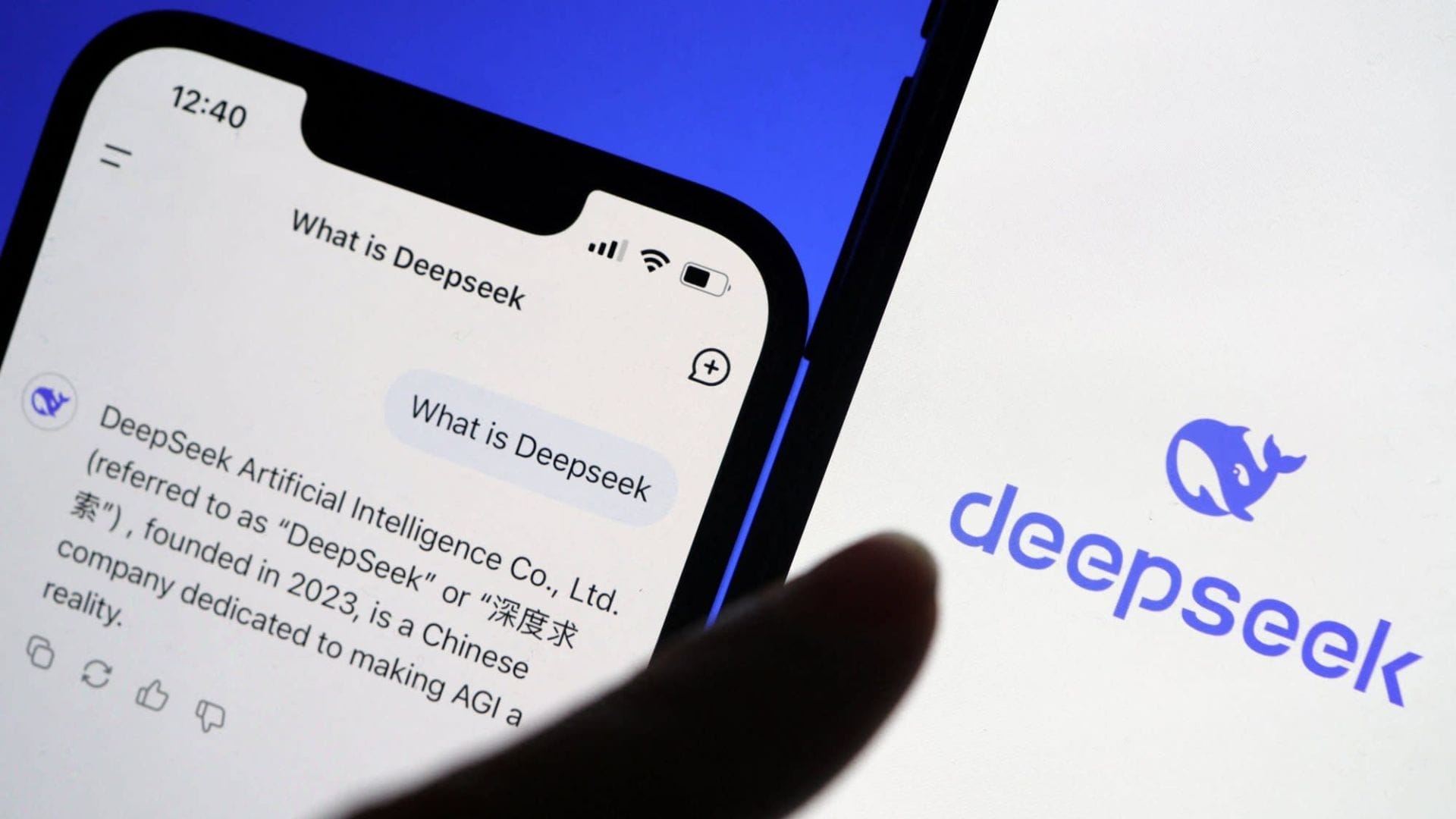DeepSeek sees sharp decline in chatbot downloads as AI apps for work and education surge
DeepSeek's chatbot experiences a significant decline in downloads as users in China shift to AI apps focused on work, study, and productivity.

DeepSeek, a start-up based in Hangzhou, has experienced a significant decline in downloads and user engagement for its self-named chatbot in the second quarter of the year, according to new data. The decline comes as Chinese consumers increasingly turn towards artificial intelligence (AI) applications tailored for office tasks, learning, and other specific needs.
According to a report released on 22 July by market research firm QuestMobile in collaboration with state-owned publication National Business Daily, average monthly downloads of the DeepSeek chatbot fell by 72 per cent to 22.6 million from the previous quarter. The drop follows the initial success of DeepSeek’s V3 and R1 AI models, which had fuelled high download numbers earlier in the year.
🚨 DeepSeek Loses Ground as AI Apps for Work and Study Surge
— The Tradesman (@The_Tradesman1) July 22, 2025
Hangzhou-based AI startup DeepSeek saw a sharp decline in downloads of its flagship chatbot in Q2 2025, as users shifted toward AI applications tailored for education and office productivity. According to a July 22… pic.twitter.com/aF6bFltfOj
Despite maintaining the largest number of monthly active users (MAUs) on the Chinese mainland at 170 million, DeepSeek still suffered a 9% decline in MAUs quarter-over-quarter. The report highlights that DeepSeek’s chatbot, which once led the market, was overtaken by ByteDance’s Doubao app. Doubao saw average monthly downloads rise to 29.8 million—a 9.5 per cent increase—while its MAUs surged 30 per cent to reach 130 million.
Other general-purpose chatbots also experienced a downward trend. Tencent Holdings’ Yuanbao recorded a 54 per cent drop in average monthly downloads to 61.8 million, while Kimi, developed by Moonshot AI, saw a 58 per cent fall to 35.3 million. QuestMobile’s report remarked, “This trend clearly shows that the phase of mere ‘chatbots’ is over.”
Consumers turn to more focused AI experiences
The decline in popularity of general-purpose chatbots such as DeepSeek’s reflects a growing preference for AI tools that offer more specialised support. According to QuestMobile’s research director, Chen Yan, there has been an increasing demand for AI applications that can support specific use cases, particularly in the areas of entertainment, office productivity, and education.
One example highlighted in the report is Baidu’s main search app, which features integrated access to both its Ernie Bot and DeepSeek’s models. In a notable shift, 59 per cent of users who left the DeepSeek chatbot in May moved to Ernie Bot in June. This trend mirrors earlier findings by analytics platform AIcpb.com, which noted a steady 9.6 per cent monthly decline in web traffic to DeepSeek’s site since March.
The emergence of alternative AI platforms has also contributed to DeepSeek’s challenges. Tencent’s ima, Copilot, and 360 Wenku from 360 Security Technology—both designed for office use—were identified as the top two AI apps in terms of MAU growth. Ima.copilot’s MAUs rose by 190 per cent, while 360 Wenku posted a 135 per cent increase in the last quarter.
In the education space, study aid apps such as Kuaidui AI, developed by edtech company Zuoyebang, and Doubao Aixue from ByteDance, have quickly gained traction. During the same period, both became the fifth and sixth most popular consumer AI apps based on MAU rankings.
“The ability of AI apps to provide productivity tools for offices, education and more is a key touchstone for their success,” the QuestMobile report stated.
Export restrictions delay DeepSeek’s model launch
Another factor that contributed to DeepSeek’s weaker performance last quarter was the postponement of its highly anticipated R2 model release. The launch, initially scheduled for May, was reportedly delayed due to U.S. export restrictions on Nvidia chips, which are critical to the model’s development. These restrictions, which affected the supply of Nvidia’s H20 AI chips to China, were reported by both Reuters and The Information.
While there has been no official word from DeepSeek regarding a new release date for the R2 model, industry sources suggest that sales of Nvidia’s H20 chips to China may resume in the near future, potentially allowing the company to move forward with the launch.
















